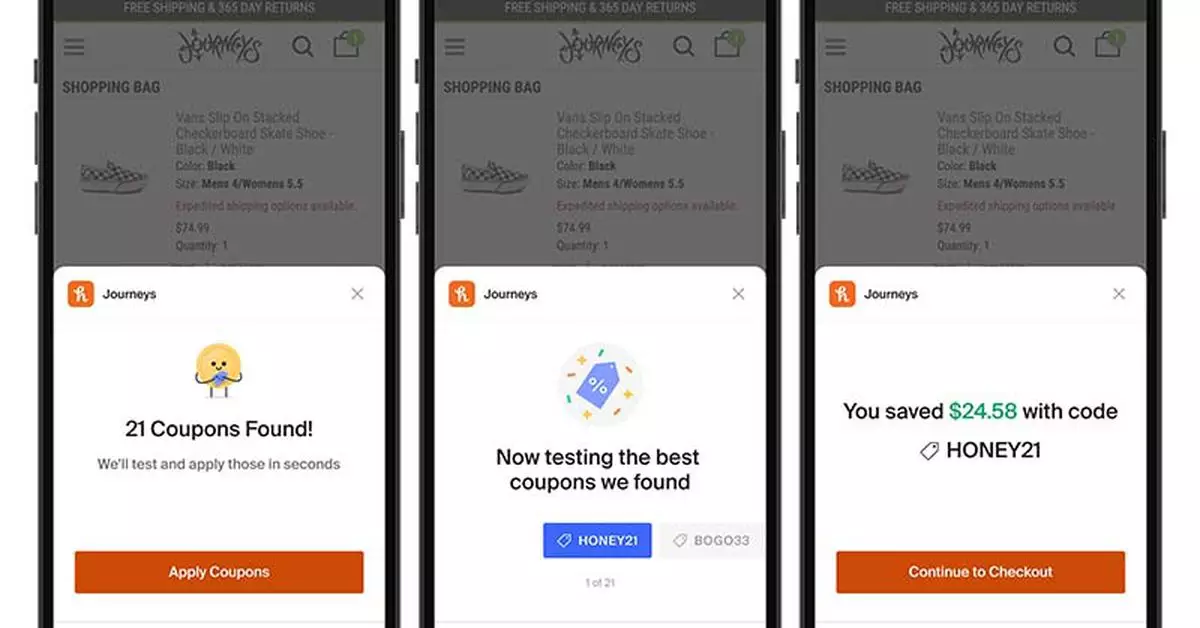Online shopping has transformed the retail landscape, offering consumers unprecedented access to products at competitive prices. Amid this evolution, browser extensions like PayPal Honey have emerged, promising to help shoppers find coupons and save money with minimal effort. However, recent scrutiny has cast a shadow over Honey’s operations, raising questions about its integrity and impact on the influencer marketing ecosystem.
At its core, PayPal Honey serves as a browser extension designed to enhance the online shopping experience. When users check out on e-commerce platforms, Honey activates and automatically searches for available coupon codes. The appeal lies in its promise to eliminate the tedious task of hunting for discounts across multiple websites. For many shoppers, the idea of a tool effortlessly providing savings feels like a win-win situation. Nevertheless, what was once viewed as a consumer-friendly service is under fire for allegedly misleading practices.
Recently, a video by YouTuber MegaLag has brought to light serious allegations against PayPal Honey, calling it a “scam.” According to MegaLag, while the extension markets itself as a money-saving technology, it often fails to deliver on its promise. In many instances, rather than providing genuine discounts, it instead highlights its own branded offers, which may not be the best available deals. This discrepancy raises a critical question: Is Honey prioritizing its partnerships with retailers over the consumer’s best interests?
Moreover, MegaLag claims that Honey has a troubling relationship with affiliate marketing. When consumers click on links shared by influencers, they expect both transparency and proper attribution. However, MegaLag alleges that when Honey is activated during a transaction, it overrides the influencer’s affiliate link, claiming credit for the sale even if no coupon was generated. This practice not only undermines the influencers’ efforts but also threatens their revenue streams. Such a situation places influencers in a precarious position, as they may lose out on earnings despite directing traffic and potential sales to retailers.
Responding to these allegations, PayPal’s VP of Corporate Communications, Josh Criscoe, defended Honey, asserting that it adheres to standard practices of last-click attribution commonly accepted within the industry. However, industry insiders have voiced concerns. A prior Twitter post from 2021 advised users to utilize Honey’s codes in different browsers to prevent loss of affiliate credit. This suggests a widespread acknowledgment of the potential pitfalls of using Honey without awareness of its practices, leading many to question the ethics of this model.
Additionally, Linus Tech Tips, a prominent tech channel, reportedly severed ties with Honey due to its affiliate link management. Such decisions reflect a growing unease within the influencer community as they grapple with the implications of their collaborations with brands that may operate under questionable business practices.
As consumers, it is crucial to remain vigilant when using tools that promise savings. The case of PayPal Honey illustrates the importance of understanding the mechanics behind discount extensions and their affiliations. Users should be equipped with knowledge, not just about potential savings but also about how those savings may come at the cost of transparency and influencer revenue.
As this story develops, it will be interesting to observe how PayPal Honey responds to these allegations and whether changes to its business model will be implemented. Continued advocacy for ethical marketing practices is essential for restoring trust between consumers, influencers, and brands alike. As shoppers become more discerning, companies must adapt to this changing landscape, fostering an environment where loyalty and transparency reign supreme.
The situation surrounding PayPal Honey serves as a stark reminder of the complexities of modern e-commerce. It urges both consumers and influencers to stay informed and advocate for fair practices, ensuring a shopping experience that prioritizes integrity and mutual benefit over simple convenience.


Leave a Reply